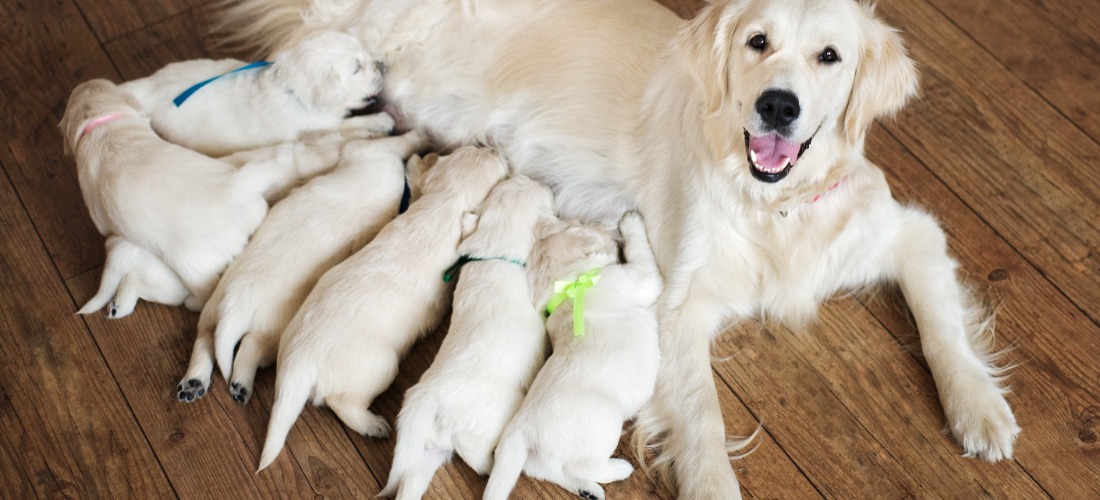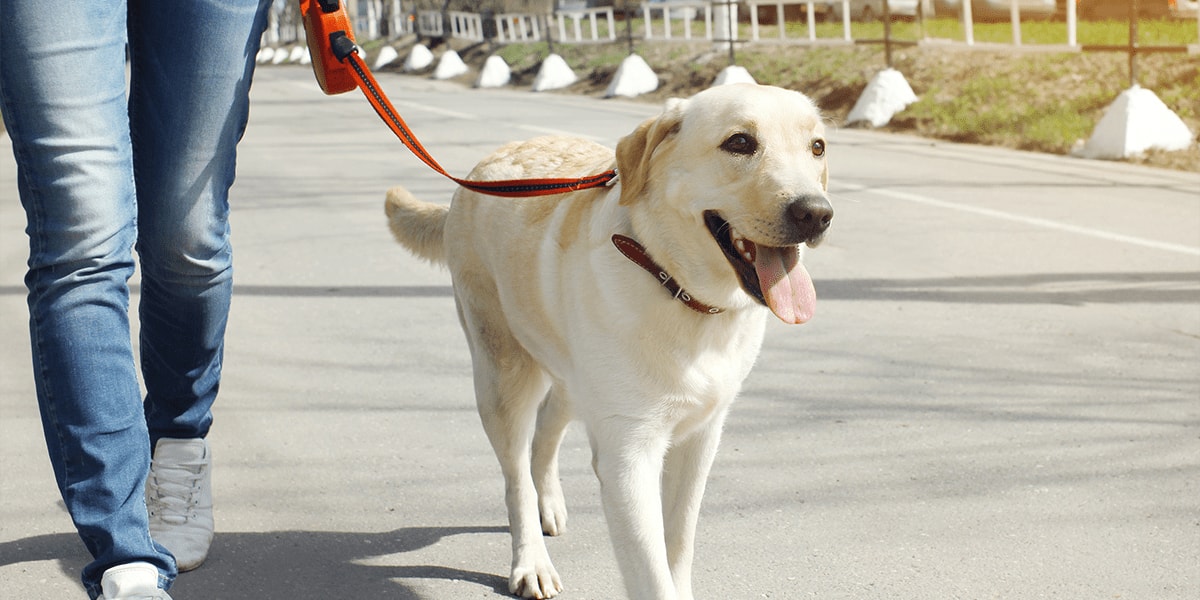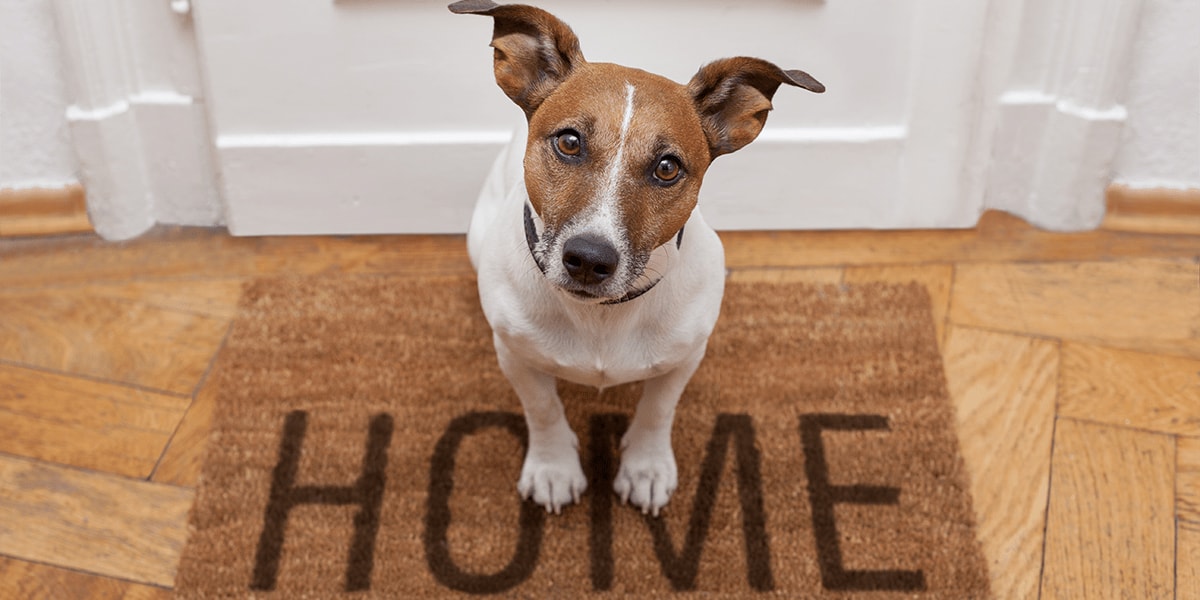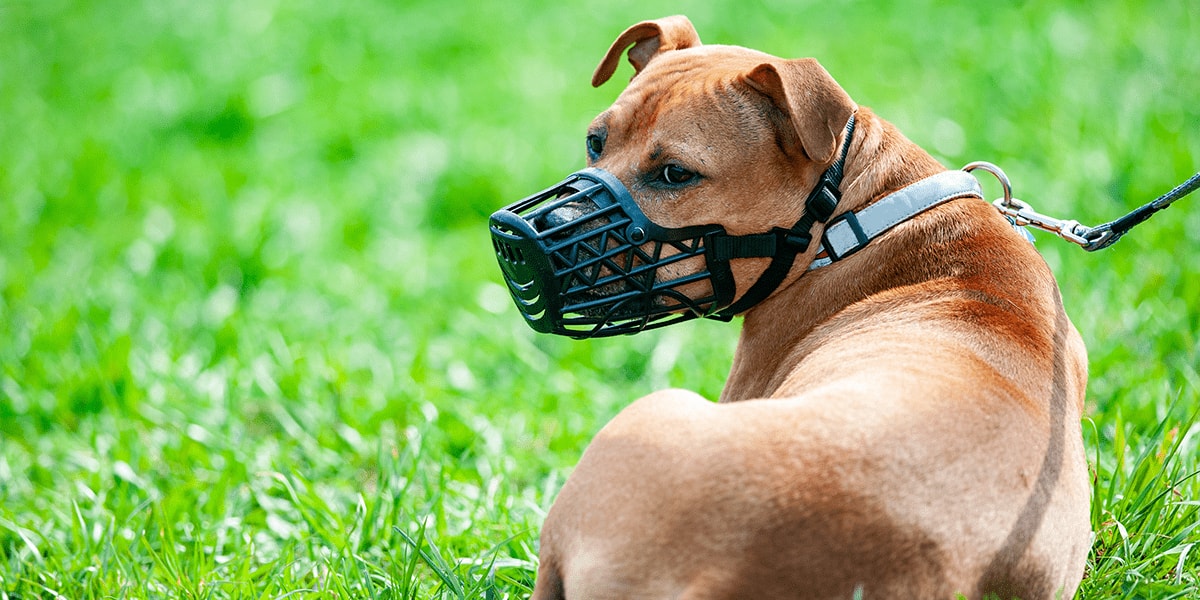Dog-related laws every owner should know
Dog laws aim to keep you, your dog, and everyone else safe and happy. Most people will be following the law just by being responsible pet owners. However, knowing the laws can be helpful, and they're essential to protect our pets.
Dog laws don't just cover criminal offences - such as animal cruelty or livestock worrying - they also cover most areas of your dog's life, including breeding, walking, boarding kennels and microchipping.
Understanding dog laws can be a real minefield – there are so many laws that can affect dog owners, which you might not be aware of. We've broken down some of the most important laws that affect dog owners. Of course, we can't cover everything in this list, and laws are constantly changing, so make sure you check what regulations apply in your area.
If you're worried that you may have broken a dog law or need legal advice, speak to a lawyer (ideally one who specialises in dog law) to get more in-depth information and help.

Animal Welfare Acts
The Animal Welfare Acts cover most aspects of animal welfare, but most importantly:
- Your dog's welfare needs: We all want to look after our pets and make sure they are happy and healthy. The Animal Welfare Acts put this into law to help ensure all owners meet their pets' 5 Welfare Needs for environment, diet, behaviour, companionship and health. Dogs must have all these things so they can have the best possible life. Failing to provide for them will mean your dog's wellbeing could suffer. In extreme cases, if a dog's needs aren't met, this would count as neglect and could lead to prosecution for animal cruelty.
- Cruelty: It is an offence under the Acts to cause an animal unnecessary suffering. This includes both cruelty, such as deliberately hurting an animal, and neglect, where someone doesn't take action to prevent suffering — for example, not meeting a pet's Welfare Needs. The Acts also lays out specific laws about mutilations and cruel operations (prohibited surgeries such as ear cropping), tail docking, dog fighting and poisoning. Anyone who lets their dog suffer can be prosecuted and face a criminal conviction, potentially facing prison time fines or a ban from keeping animals.
In 2019, legislation known as Finn’s Law was introduced preventing those who attack or injure service animals from claiming self-defence…
From 29 June 2021, Finn’s Law Part 2 will see the maximum prison sentence for animal cruelty will be raised from six months to five years and an unlimited fine.
If you suspect cases of animal neglect or cruelty should, they should be reported to RSPCA (England and Wales), SSPCA (Scotland) or USPCA (Northern Ireland).
Laws:
- Animal Welfare Act 2006 in England and Wales (this includes The Animal Welfare (Sentencing) Bill and The Animal Welfare (Service Animals) Bill)
- Animal Health and Welfare (Scotland) Act 2006 in Scotland
- Welfare of Animals Act (Northern Ireland) 2011 in Northern Ireland.
Shock collars
If you live in Wales, it is an offence to fit an electric collar on a dog. These shock collars are sometimes used for training but can hurt dogs if used improperly. Even if used as intended they can cause them a lot of stress.
Unfortunately they are still legal in the rest of the UK, but the English and Scottish governments are reviewing legislation to ban their sale and use. We would never advise using shock collars or any other negative training techniques. Reward-based training is far more effective than any other methods.
Law:
- Animal Welfare (Electronic Collars) (Wales) Regulations 2010 in Wales.
Breeders and getting a puppy

Dog breeding laws set out guidance to protect breeding dogs' health and wellbeing, and try to help their puppies have a good start in life.
Anyone running a business that breeds and advertises dogs for sale should have a dog breeding license. This includes:
- Anyone breeding three or more litters a year in England, Wales or Northern Ireland
- Anyone breeding five or more litters a year in Scotland (to be changed to 3 or more from September 2021)
- For those breeding one or two litters in 12 months and selling puppies, a licence may be required if they are deemed to be breeding dogs and advertising a business of selling dogs. The local authority determines this.
When getting a puppy, always check if the breeder has a license. Breeders should give their license details, including the license number, in the advert for your puppy.
License holders must provide for all the welfare needs of the breeding dogs and their puppies. They should also provide socialisation for their puppies, have preventive healthcare plans in place agreed with their vet and make sure all their dogs have toys and exercise.
License holders must not sell a puppy under eight weeks old or in need of any veterinary treatment (for example, an ill puppy).
You can also check a breeder's star rating on your local council website in England. A five-star breeder should have higher standards with extra steps to make sure their dogs are healthy and happy.
If a breeder doesn't have a license and you think they should, or if you feel they're not following the regulations of their license, you can report them to your local council. If someone is found breeding dogs for business without a license or is breaking the conditions of their license, they could face a fine or even prison time.
From April 2020, the third party sale of puppies and kittens was banned in England, which means if you buy a puppy under six months, you must deal directly with the breeder or rehoming centre; puppies should only be sold from their place of birth. Similar legislation will be in place for Wales and Scotland from September 2021.
If you have concerns that a puppy is living in bad conditions, like a puppy farm, you can also call the RSPCA (or SSPCA in Scotland).
Laws:
- Breeding and Sale of Dogs (Welfare Act) 1999
- Welfare of Animals (Dog breeding establishments and miscellaneous amendments) Regulations (Northern Ireland) 2013 in Northern Ireland
- Animal Welfare (Breeding of Dogs) (Wales) Regulations 2014 in Wales
- Animal Welfare (Licensing of Activities Involving Animals) (England) Regulations 2018 in England.
Out and about with your dog

Identification
Legally, all dogs must wear a collar and ID tag when out in public, which must detail their owner's name and address, including postcode. This applies whether your dog is on their lead or not.
Since 2016, it is also a legal requirement across the UK to have your dog microchipped by the time they are eight weeks old and to keep your contact details up to date on one of the government standard registers. You should ask for proof a microchip has been implanted before buying a dog.
The police enforce microchip legislation; if your dog was to be picked up as a stray or scanned by the dog warden for another reason, you have 21 days to get them chipped to avoid a fine.
It's important to check your dog is microchipped when you bring them home and that you keep the details on their microchip up to date throughout their lives. If you're not sure if your dog is microchipped, they need a microchip implanted, or you don't have their microchip details, your vets should be able to check their chip and provide help and advice.
Laws:
- Control of Dogs Order 1992
- Dogs (Amendment) Act (Northern Ireland) 2011 in Northern Ireland
- Microchipping of Dogs (England) Regulations 2015 in England
- Microchipping of Dogs (Wales) Regulations 2015 in Wales
- Microchipping of Dogs (Scotland) Regulations 2016 in Scotland.
Cleaning up after your dog
There are several laws that cover dog fouling – sadly it’s a big problem in a lot of areas across the country. In most public areas, you will be required by law to clean up after your dog.
Your council also has the power to introduce Public Space Protection Orders (PSPOs). These can be used to make sure dogs are kept under control (see below) as well as to require dog owners to clean up after their pets in other areas.
In places with a PSPO, you can get an on-the-spot fine if you let your dog foul without a reasonable excuse (and not noticing your dog going to the toilet or not having a poo bag don’t count!). Areas with a PSPO should have signs to indicate this.
Even where it is not legally required to clean up after your dog, it’s a good habit to get into. As well as keeping the streets tidy it means you won’t be responsible for passing on some nasty parasites that can harm people and other animals.
Laws:
- Civic Government (Scotland) Act 1982 in Scotland
- Litter (Animal Droppings) Order 1991 under the Environmental Protection Act 1990
- Litter (Northern Ireland) Order 1994 in Northern Ireland
- Dog Fouling (Scotland) Act 2003 in Scotland
- Anti-social Behaviour, Crime and Policing Act 2014 in England and Wales.
Restricted access
Dogs can’t always go everywhere we can go. In England and Wales, councils can create PSPOs (see above), so that in certain areas your dog may have to be kept on a lead. PSPOs could also limit the number of dogs you can have with you or ban dogs from certain areas. Areas under a PSPO will be clearly marked.
Law:
- Anti-social Behaviour, Crime and Policing Act 2014 in England and Wales
Damage
You can be held responsible for damage your dog causes. This could be to a person, property (including vehicles) or another animal. There are complicated rules around when you would count as liable, so we recommend doing some further research and reading up if you want to know all the ins-and-outs of the law.
We would strongly advise taking out third party insurance so that if your dog did happen to damage something or hurt someone you would be covered.
Law:
- Animals Act 1971
Out of control dogs
In public places, you must keep your dog ‘under control’. Generally, this means close to you and ideally on a lead. If they’re not on a lead, they need to be under control in another way, such as paying attention to your voice commands.
It’s a criminal offence to allow your dog to be ‘dangerously out of control’ – this counts in both public and private areas (such as inside someone's home). This could be anything from your dog chasing a person or another animal to physically harming them. It can also be if someone feels at risk of being injured by your dog. Either the owner or the person in charge of the dog can be charged. If this happens, you may have to pay a fine, compensation and costs. If your dog hurts a person, unfortunately they can be seized by police and may even be humanely destroyed.
We recommend making sure you’re on top of your dog’s training. Always keep your dog on a lead around strange dogs if they don’t have good recall as, even if your dog is friendly, you never know how the other dog is going to react.
Law:
- Dangerous Dogs Act 1991 (Section 3)
Dogs and livestock
If your dog were to attack or chase livestock, or isn’t ‘under close control’ (on a lead) at certain times of year or in certain areas in the countryside, you could face a fine plus compensation. If they think your dog is a threat to livestock, a farmer is legally allowed to stop them and this can include killing a dog that’s chasing or worrying farm animals. This is why it’s so important to keep your dog safe and under control at all times when walking in the countryside.
Law:
- Dogs (Protection of Livestock) Act 1953
At home

Noise
A dog barking or howling a lot can be considered a noise nuisance for your neighbours and other people around you. The odd bark shouldn’t be a problem, as the goal isn’t to stop dogs being dogs. However, your neighbours can complain to your local council if your dog is making excessive noise. Read our advice on dealing with unwanted behaviour if you’re having trouble with barking.
Law:
- Environmental Protection Act 1990
Boarding your dog
Remember that any boarding kennel must be licensed by the local council, including doggy daycare and home boarding. As with breeders, you should check the license (and look for a five star rating in England) before picking a kennel to send your dog to.
If you spot a boarding kennel without a license, let your local council know as it means they won’t have been inspected to make sure they meet standards.
Laws:
- Animal Boarding Establishments Act 1963
- Animal Welfare (Licensing of Activities Involving Animals) (England) Regulations 2018 in England.
Breed Specific Legislation

Some breeds of dog are illegal to keep in the UK. The five banned dog breeds are:
- Pit Bull Terrier
- Japanese Tosa
- Dogo Argentino
- Fila Braziliero
- American XL Bully
The first four listed types have been banned since 1991. It is illegal to own, breed, sell or rehome these dogs without an exemption from a court. If there are concerns a dog may be one of these illegal breeds, the police will usually ask an expert to verify the dog's appearance and if they look enough like the breed type (or a cross) of one of these breeds, then they will be considered to be a banned breed. If you are found to have one of these breed types, you can apply to the court for an exemption order. Your dog will then undergo a behavioural assessment to prove they are not a danger to society.
Dogs who are granted exemption must still be on a lead and muzzled in public at all times. You must also take out third party liability insurance for your pet. You still can’t breed, sell, gift, or let stray a dog with an exemption. Unfortunately, if your dog is judged to be one of these breeds and fails their behaviour assessment, or if you do not apply for an exemption order, they will be humanely destroyed.
In 2023, the American XL Bully was added to the list and it will be illegal to breed, sell, abandon, or giveaway these dogs from 31 December 2023. It will be illegal to own an American XL Bully without a Certificate of Exemption from 1 February 2024. The certificate must be applied for by 31 January 2024 but a behaviour assessment is not required. From 1 February 2024, owners of American XL Bully dogs must:
- Have their dog microchipped
- Keep their dog on a lead and muzzled at all times in public places
- Keep them in a secure home and garden so they cannot escape
- Have third party public liability insurance cover
- Be at least 16 years old
Additionally, owners will need to provide proof that their dogs have been neutered by either 30 June 2024 or 31 December 2024, depending on their age. Visit our blog to find out more about the XL Bully ban.
Law:
- Dangerous Dogs Act 1991 (Section 1 and 4B)
Microchipping your dog
Getting your pet microchipped is the best way to make sure you can be reunited if they’re lost or stolen.
Neutering your dog
Neutering your pet can help prevent some really serious illnesses. Find out why our vets recommend it

